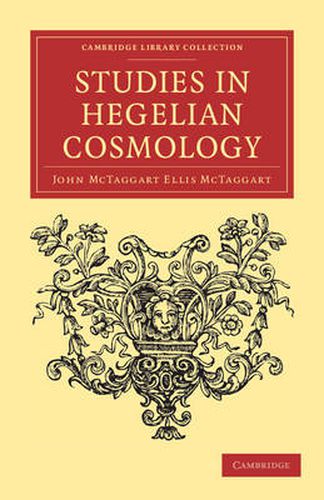Readings Newsletter
Become a Readings Member to make your shopping experience even easier.
Sign in or sign up for free!
You’re not far away from qualifying for FREE standard shipping within Australia
You’ve qualified for FREE standard shipping within Australia
The cart is loading…






John McTaggart (1866-1925) was a Cambridge philosopher, famous for his metaphysical theory that time is not real and that temporal order is an illusion. Although best known for his contributions to the philosophy of time, McTaggart also spent a large part of his career expounding Hegel’s work. In this book, first published in 1901, he discusses which views on a range of topics in metaphysics and ethics are compatible with Hegel’s logic and idea of ‘the Absolute’. Some early work on theories for which McTaggart later became well known can be found in this work, such as his beliefs that humans are immortal, that the Absolute is not in any sense a person, and that love is the relation that binds people together. In this book he also discusses punishment, sin, morality and whether Hegel could be considered a Christian.
$9.00 standard shipping within Australia
FREE standard shipping within Australia for orders over $100.00
Express & International shipping calculated at checkout
John McTaggart (1866-1925) was a Cambridge philosopher, famous for his metaphysical theory that time is not real and that temporal order is an illusion. Although best known for his contributions to the philosophy of time, McTaggart also spent a large part of his career expounding Hegel’s work. In this book, first published in 1901, he discusses which views on a range of topics in metaphysics and ethics are compatible with Hegel’s logic and idea of ‘the Absolute’. Some early work on theories for which McTaggart later became well known can be found in this work, such as his beliefs that humans are immortal, that the Absolute is not in any sense a person, and that love is the relation that binds people together. In this book he also discusses punishment, sin, morality and whether Hegel could be considered a Christian.